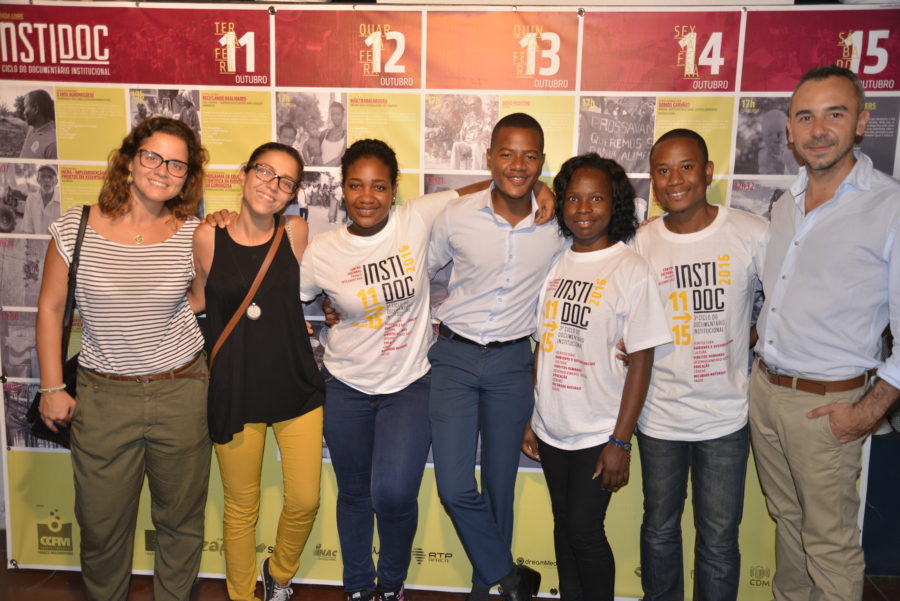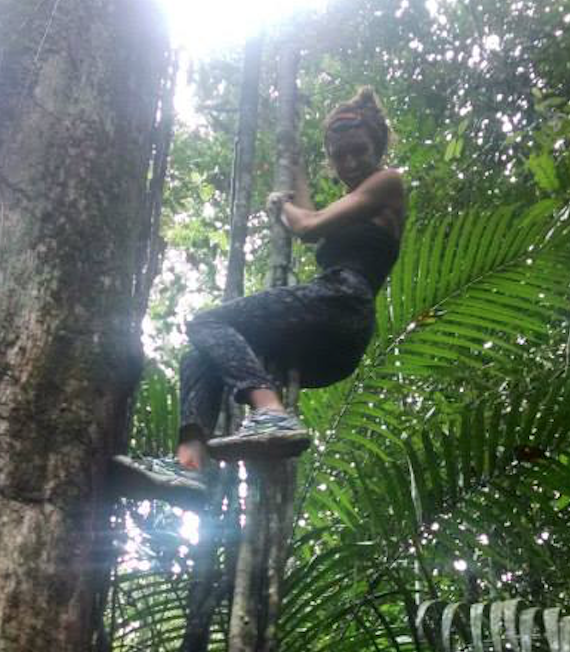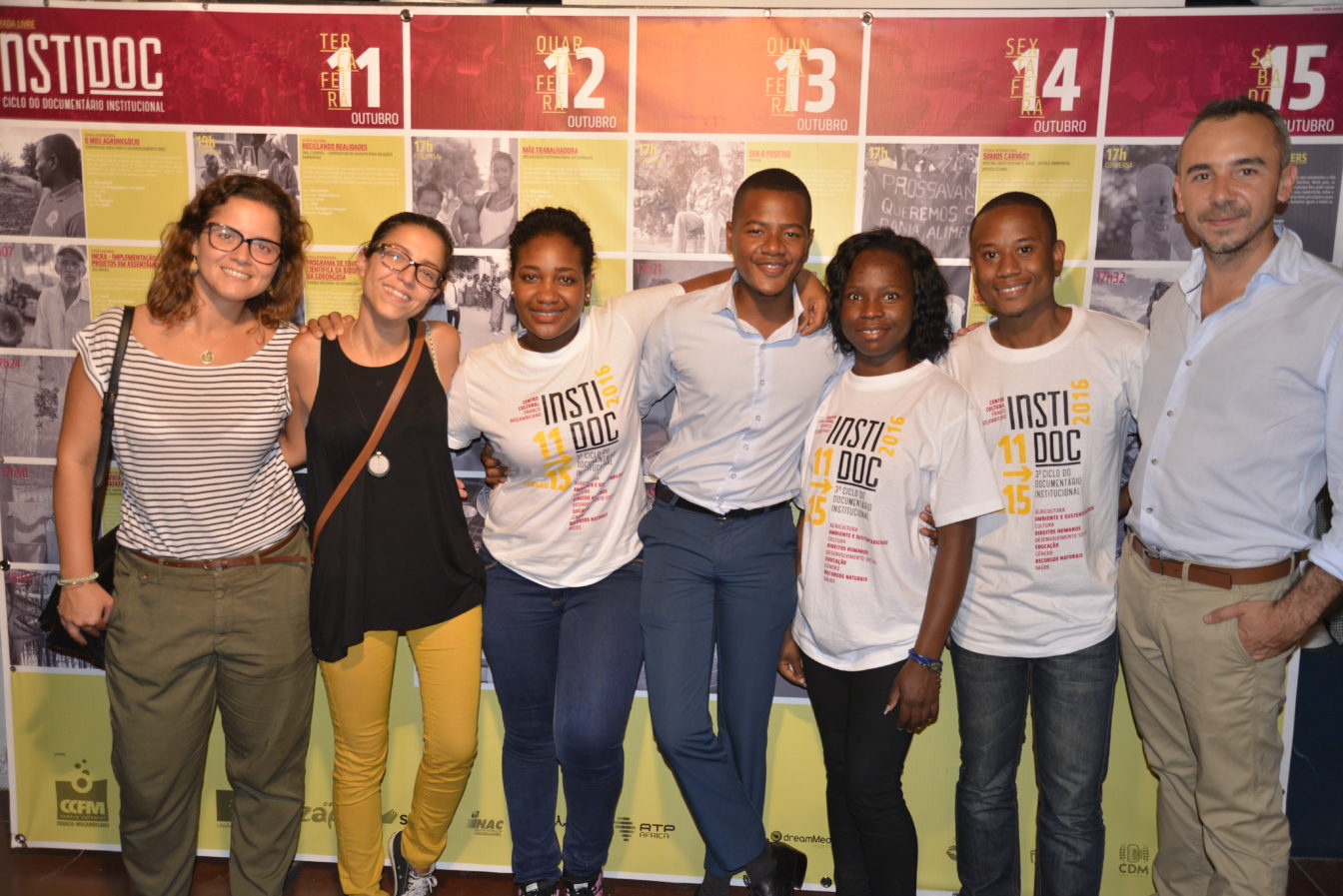October 11th was the 3rd annual Instidoc Film Festival in Maputo was the public premiere of the Namuli film in Mozambique. The theme of the night focused on biodiversity and environmentalism within the country. Namuli premiered alongside films that showcased the conservation projects at the Parque Nacional de Gorongosa and the Partial Marine Reserve of Ponta de Ouro, some of the country’s most cherished lands. The festival also further solidified our new Legado intern, Stephanie Mladinich’s, commitment to helping Legado and LUPA protect biodiversity and empower local communities on Mount Namuli. Read on for her account.
Living in Maputo as an intern for Legado for the past two months, I have begun to pick up the rhythm of the city. It is transmitted equally through the music and art, as it is throughout the streets. The energy is palpable in the markets and on street corners. Curiosity and creativity are rampant and it is the abundance of events and gatherings that bring together the community of Maputo to share their ideas and their inspiration.
Instidoc was especially captivating to me because it showcased this rhythm. I joined the audience as we were compelled by the adventure of climbing Mount Namuli, the audience accompanied the team of scientists on their trek up the mountain with excitement as they looked down from the heights of the cliffs and searched through the misty Ukalene forest for the unique ants, insects, and reptiles that make up the rich biodiversity of Mount Namuli. Not only did the audience connect with the thrill of discovery on Mount Namuli, but the energy of the songs, dances, and stories of the Lomwe communities living at the base of the mountain energized the theatre.

The films brought together topics as diverse as education, environmental justice, and health. They contemplated the roles of women in Mozambican society and showed the formation of the first youth symphonic orchestra in Maputo. Despite the diversity of interests and professions brought together at the festival, as an audience watching the films, we too all became teachers, activists, doctors, and musicians – following each character and story, and sharing the conversation.
Conservation crosses the borders of disciplines, and is fed by different perspectives, sharing ideas, and challenging solutions. It is in this critical shared environment that communities are built. Ranging from youth empowerment through scientific education in Gorongosa National Park to the tagging of turtles for protection, the importance of conservation in Mozambique is blatant, and the initiatives throughout the country are profound.
The hard work that is put into these projects on a local, national, and international level is humbling and it was apparent in the conversations and questions that followed the films. People working together to find solutions for questions and paradigms that are not easily found.
For me, the Namuli project represents a new frontier in community development and conservation. Incorporating biodiversity conservation and community development while connecting with the public the beauty of our world, both in nature and community. The inherent connection of the people in Namuli to the resources of the forest and the land is clear, and these connections are present throughout the Mozambican context. The solutions to the problems of deforestation and habitat loss are not easy but the importance of the project is in collaboration and unity; striving to work together to find how biodiversity and socioeconomic opportunities can grow and improve together, without impeding or compromising the success of one or the other.
In my time in Maputo, one of my favorite phrases that I have learned is estamos juntos, we are together. It is a phrase in Portuguese that is said when parting ways, instead of ciao or até logo, bye or see you later. Estamos juntos carries with it a solidarity and an intimacy. Whether I am at cultural events like Instidoc or walking through the streets, it is a feeling that has been very relevant to my time in Mozambique.
When thinking about the topics addressed at the film festival, their complexities, and the conversations that arose, I cannot think of a much better way to express myself than the way the Mozambicans do. Whether it is on top of Mount Namuli, in the forests of Gorongosa, or on the shores of Ponta de Ouro, we stand together on the road to finding a way to live sustainably and thrive with our environment. Estamos juntos.
 Stephanie is Legado: Namuli’s intern, currently based in Maputo, Mozambique. She is studying Portuguese as a David L. Boren Scholar and completed her undergraduate studies in Biology at the University of New Mexico in May 2016. She is a long-distance runner, a salsa dancer, and mangoes are her favorite fruit.
Stephanie is Legado: Namuli’s intern, currently based in Maputo, Mozambique. She is studying Portuguese as a David L. Boren Scholar and completed her undergraduate studies in Biology at the University of New Mexico in May 2016. She is a long-distance runner, a salsa dancer, and mangoes are her favorite fruit.

